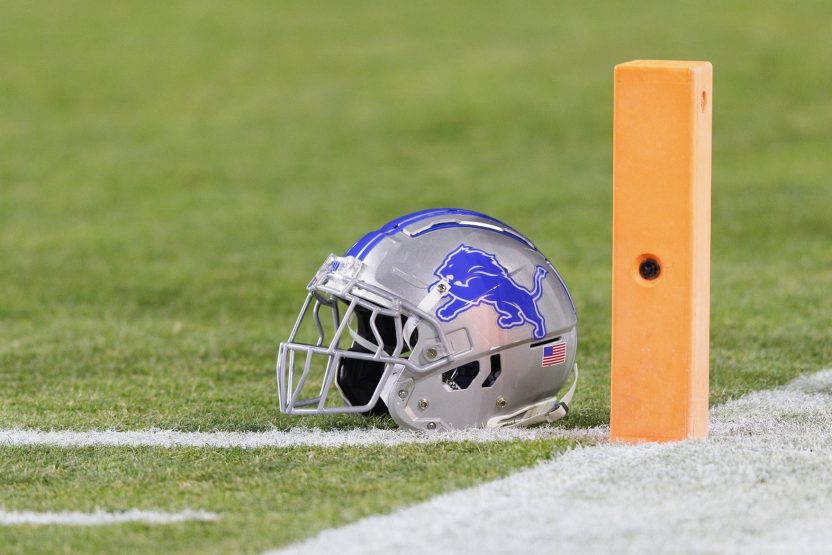Though undoubtedly more popular in Europe, the UEFA Champions League continues to capture the hearts of more American fans. That’s probably because it’s one of the most prestigious tournaments in the world, making it exciting to watch. The fierce rivalries between teams like Liverpool and Real Madrid mean Champions League matches are highly anticipated, and that is reflected in the tournament’s growing viewership numbers.
The Champions League’s global audience already significantly dwarfs the Super Bowl’s, reaching roughly 450 million unique viewers in 2024 alone compared to the latter’s 202.4 million. However, it still has a long way to go before cementing its foothold in the US, with analysts estimating that it needs at least a 10,000% increase in viewership to get on the same level as the Super Bowl. That’s probably why many of its affiliated organizations have made efforts to make matches more accessible to American spectators, with Dortmund and La Liga opening offices in New York City and organizers airing finals more strategically so those watching Stateside can catch them on weekends rather than during the week.
Others are going even further by leveraging technology to better engage fans, encourage them to get involved in Champions League communities, and motivate them to invest in match outcomes to boost viewership numbers.
Here are some key ways they’re reshaping fan participation to that end.
More active spectatorship
Watching a Champions League game can often be passive in nature, especially for those tuning in at home via a TV broadcast or live stream. That’ll usually be the case for the tournament’s American fans, many of whom may not have the motivation or budget to personally attend matches held at popular stadiums across Europe.
The key opportunity for reshaping fan participation here thus lies in making Champions League games more active and accessible. That’s where sports betting comes in. This activity has a long history in the US, with the earliest wagers placed dating to the country’s first racetracks in the 1660s, and people now bet on everything from baseball to hockey. Thanks to the internet, however, one no longer needs to do it in person, and bettors aren’t limited to betting on the outcomes of a match before it happens.
Over 62% of all betting now takes place online because it makes speculating on a broader range of sports, tournaments, and teams more accessible. Today’s platforms also provide new in-play betting options so viewers can more actively place wagers instead of simply watching a game unfold. The features Thunderpick offers shows how those benefits extend to Champions League betting. Aside from placing single bets on games, it allows users to create accumulators. A dedicated LIVE MODE also means bettors can use the platform’s analytics to speculate as a match happens. These kinds of features can make all the difference when it comes to engaging current fans and drawing in new viewers from the US, who would otherwise maybe not watch the Champions League games at home.
Enhanced tournament interactivity
Thanks to the aforemtioned efforts made to strengthen soccer’s US audience over the years, over 37% of American adults now consider themselves fans of the sport, and a whopping 97% are passionate about its matches, teams, and tournaments. More notably, 28% of them have already traveled abroad just to watch games in-person. This may be because of how thrilling it can be to witness soccer tournaments live. They’re great opportunities to socialize with fellow fans and enjoy the community aspect of the sport. As the organizer of the most-watched soccer tournament in the world, it’s thus no surprise that UEFA wants to take things up a notch by partnering with tech companies to further engage fans who make the time to attend matches.
One of the best examples of this is its collaboration with consumer electronics brand OPPO. The company recently took its position as an official Champions League partner to the next level by setting up an experiential booth for fans at the 2024 final in Wembley, which offered photo ops with replicas of the Champions League trophy and the finalists’ team benches. It then simultaneously held the OPPO imagine IF Photography Awards on social media, encouraging fans who attended the finals to submit memorable soccer moments and rewarding the winners by showcasing their images at Wembley during the match. Such campaigns show how eliciting audience participation at major Champions League games can add value to those looking to attend, motivating even fans coming from as far away as the US to make the trip.
Exclusive fan rewards
Offering rewards is a tried-and-tested way to ensure loyalty, which is why the majority of businesses use rewards programs to keep customers coming back to their products and services. This strategy can be especially crucial for building faithful fanbases in soccer, as those who follow the sport often support multiple teams and tournaments. Many leagues thus set up points systems to offer exclusive perks, like hotel discounts, stadium tours, and giveaways. However, UEFA goes even further, leveraging emerging technologies to make rewards programs more interactive and even attract fans from more niche demographics.
A recent announcement marked the beginning of its partnership with Mastercard, allowing fans to start participating in new Champions League loyalty programs. These operate on the company’s blockchain rewards platform, Priceless, allowing followers with a Moonpay digital wallet to win virtual assets and access unique football experiences. Chief among the interactive initiatives launched on the platform was an NFT trivia game run by Mastercard and UEFA. Introduced in February 2024, it let Champions League fans showcase their soccer know-how to score exclusive prizes, including two tickets to the June finals at Wembley. As the partnership between the two continues, it’ll undoubtedly draw in more dedicated followers from around the globe—including the US, which is one of the biggest countries leading blockchain adoption worldwide.







